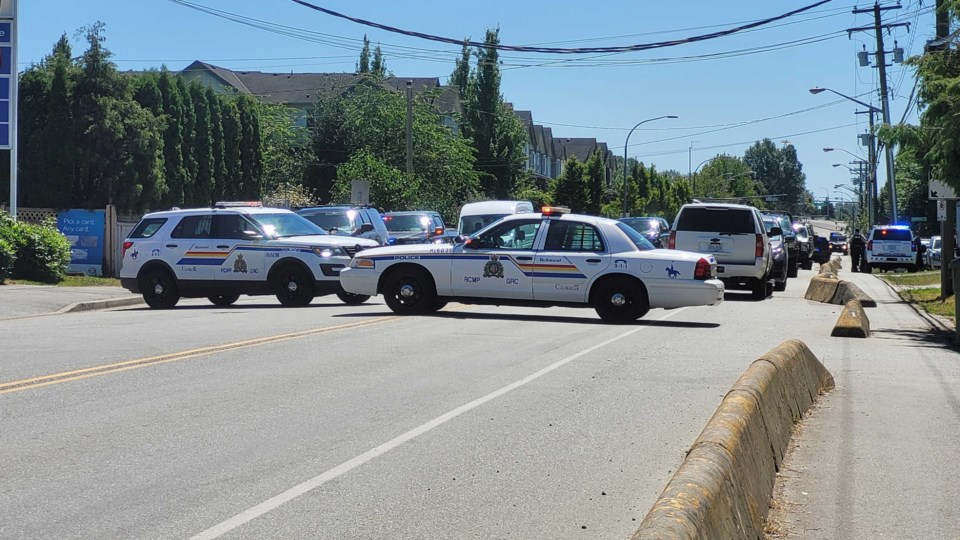Not only will rank-and-file Richmond RCMP officers receive significant pay increases after recently unionizing, non-unionized officers will also receive pay raises.
In addition to salary adjustments between about 5.4 and 10 per cent, commissioned officers – inspectors, superintendents and chief superintendents – will get retroactive pay of 1.75 per cent going back to 2017.
These rates are set by the Treasury Board.
The City of Richmond, however, pointed out this will have minimal impact as there are usually only three or four non-union officers at the Richmond detachment.
This didn’t stop Richmond Mayor Malcolm Brodie, along with a group of other municipal leaders from the Urban Mayors’ Caucus, from highlighting this to Public Safety Canada as another additional cost to the city.
The group was speaking to the assistant deputy minister about their concerns around the unionization process as well as pay raises for other police officers, which ended up being higher than expected.
Unionized RCMP officers will be receiving retroactive pay to 2017, which is expected to amount to $10.6 million for the City of Richmond.
The city had put aside $2.5 million annually for three years in anticipation of higher RCMP costs, but they are now about $3 million short.
“We ask a lot of our RCMP officers and I, personally, and I think our city wants them to be paid properly, because we ask them to go into a lot of uncomfortable and potentially dangerous situations,” Brodie said. “I don’t want the discussion to be taken as a reluctance to pay them properly, it’s just all of a sudden there’s this big payment to be made and that’s very difficult.”
The Union of BC Municipalities (UBCM) and more than 70 local governments also met with Public Safety Canada last week, outlining largely the same concerns, including the lack of communication and failure to engage local governments during the negotiations, the inability for municipalities to absorb the retroactive costs, and the fact guidance from the federal government on how much this would be “fell well short of the final settlement.”
The federal government has agreed to delay sending invoices for the next one to two months, according to UBCM.
The provincial government recently put out a study about reforming the Police Act, and one of the recommendations was to move to a provincial police force, replacing the RCMP.
Despite higher salaries, Brodie thinks moving to a B.C.-wide police force is a “very unwise suggestion.”



